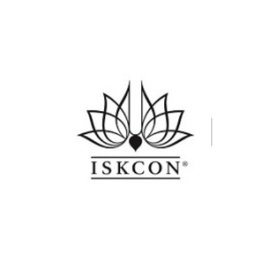Operations Manager
Year Eluru, AP, IN, India
Job Description
Operations Manager (Food Production)
Locations: Eluru
Role Summary
The Operations Manager (Food Production) will be responsible for planning, organizing, and overseeing the entire food production process in a centralized kitchen. The role ensures production efficiency, adherence to quality and hygiene standards, cost control, manpower management, and timely delivery of meals as per organizational requirements.
Key Responsibilities
1. Production & Operations Management
Plan, coordinate, and supervise daily food production activities to meet demand (volume & timelines). Monitor production processes to ensure standardization, consistency, and efficiency. Implement SOPs (Standard Operating Procedures) for cooking, packaging, and dispatch. Ensure effective utilization of raw materials, equipment, and manpower.
2. Quality, Hygiene & Safety
Ensure compliance with FSSAI, HACCP, and other food safety & hygiene standards. Regularly conduct quality checks for raw materials, cooking, and finished food. Implement workplace safety protocols and monitor staff adherence. Conduct regular kitchen audits for cleanliness, pest control, and hygiene.
3. Manpower & Team Management
Manage a team of Masters, Assistant Masters, Helpers, and Dispatch Staff. Prepare shift rosters and ensure adequate staffing for smooth operations. Train and develop staff on cooking techniques, hygiene, and safety standards. Foster teamwork, discipline, and continuous improvement within the kitchen staff.
4. Resource & Inventory Management
Monitor stock levels of raw materials, packaging, and consumables. Coordinate with the purchase team for timely procurement. Minimize wastage and control food production costs. Ensure optimal use of kitchen equipment and schedule preventive maintenance.
5. Coordination & Reporting
Coordinate with the Dispatch, Logistics, and Admin teams for smooth distribution of food. Track daily production numbers, wastage, and manpower deployment. Submit regular reports on production efficiency, quality, and compliance. Address operational issues promptly and escalate when necessary.
Key Skills & Competencies
Strong knowledge of large-scale food production operations. Understanding of food safety regulations (FSSAI, HACCP). Leadership and team management skills. Planning, problem-solving, and decision-making abilities. Ability to work under pressure in a high-volume production environment. Excellent communication and coordination skills.
KPIs (Key Performance Indicators)
On-time meal production & dispatch. Food quality & hygiene compliance score. Cost efficiency & wastage reduction. Staff productivity & training coverage. Equipment uptime & maintenance adherence.
Job Type: Full-time
Pay: ₹25,000.00 - ₹30,000.00 per month
Benefits:
Cell phone reimbursement Health insurance Provident Fund
Work Location: In person
Beware of fraud agents! do not pay money to get a job
MNCJobsIndia.com will not be responsible for any payment made to a third-party. All Terms of Use are applicable.
Job Detail
-
Job IdJD4736476
-
IndustryNot mentioned
-
Total Positions1
-
Job Type:Full Time
-
Salary:Not mentioned
-
Employment StatusPermanent
-
Job LocationEluru, AP, IN, India
-
EducationNot mentioned
-
ExperienceYear
